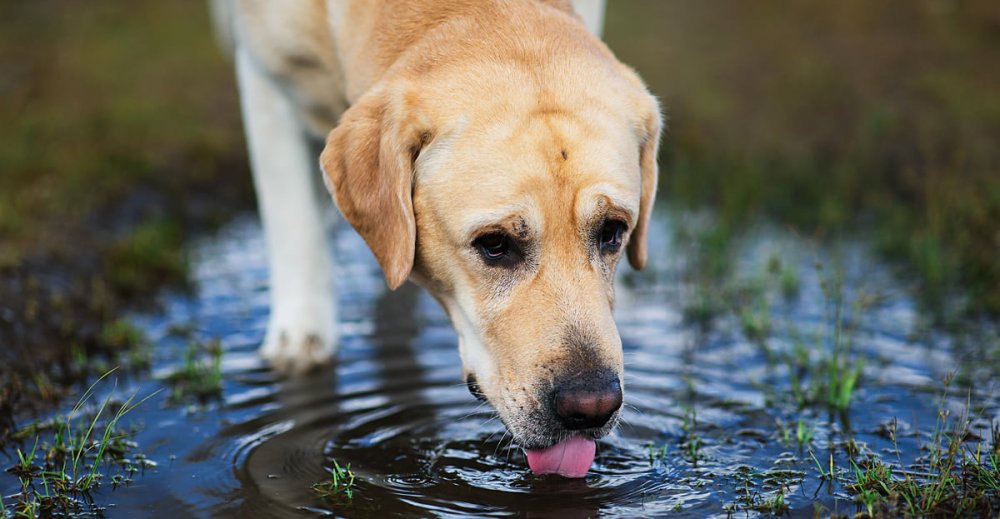Imagine your dog as a finely tuned sports car. Just like a car needs the right fuel to run smoothly, your dog needs the right balance of glucose to stay healthy. Hypoglycemia, or low blood sugar, can throw a spanner in the works, causing your furry mate to feel off-kilter. This article is here to shed light on hypoglycemia in dogs, diving into its causes, symptoms, and how you can manage it effectively. Understanding this condition is crucial for any dog owner, as it can affect dogs of all shapes and sizes. So, let’s get into the nitty-gritty and ensure your four-legged friend stays in top form.
Causes of Hypoglycemia in Dogs

Common Causes
Hypoglycemia in dogs can be triggered by several factors. One of the most common culprits is an insulin overdose, especially in diabetic dogs. This can cause their blood sugar levels to plummet dangerously low. Prolonged fasting is another factor, as it deprives the body of the glucose it needs to function. Severe illnesses, like liver disease or infections, can also lead to hypoglycemia by disrupting normal metabolic processes.
Breed Predispositions and Risk Factors
Some breeds are more prone to hypoglycemia than others. Toy breeds, like Chihuahuas and Yorkshire Terriers, are particularly at risk due to their small size and fast metabolism. Puppies, especially those from toy breeds, are also more susceptible because they have less fat to rely on for energy.
Role of Diet and Exercise
Diet and exercise play a crucial role in maintaining stable blood sugar levels. A balanced diet with regular meals helps prevent sudden drops in glucose. Exercise is important too, but it should be moderated to avoid excessive energy expenditure, which can lead to hypoglycemia.
Symptoms of Hypoglycemia in Dogs

Recognising Early Signs
Spotting hypoglycemia early can make all the difference. Keep an eye out for signs like lethargy, weakness, and confusion. Your dog might seem unusually tired or have trouble focusing. These symptoms are your first clue that something’s not quite right.
Severe Symptoms and When to Seek Emergency Care
If hypoglycemia progresses, symptoms can become more severe. You might notice your dog having seizures, collapsing, or even losing consciousness. These are red flags that need immediate attention. Don’t wait around—get to a vet as soon as possible if you see these signs.
Behavioural Changes
Low blood sugar can also lead to noticeable behavioural changes. Your usually friendly dog might become irritable or anxious. They could also show signs of disorientation, like pacing or staring blankly. These changes are important to note and act upon quickly.
Diagnosis of Hypoglycemia in Dogs

Veterinary Tests and Procedures
When it comes to diagnosing hypoglycemia, your vet will likely start with a blood test to measure your dog’s glucose levels. This is a straightforward procedure that provides immediate insights. But that’s just the beginning. To get a full picture, your vet might also recommend additional tests like a complete blood count or a biochemistry profile. These tests help rule out other underlying conditions that could be causing the low blood sugar.
Importance of a Thorough Medical History
Don’t underestimate the power of a good chat with your vet. A thorough medical history is crucial. It helps identify patterns or triggers that might be contributing to your dog’s condition. Details about your dog’s diet, exercise routine, and any recent illnesses can provide valuable clues. This information is like a roadmap, guiding your vet to the most accurate diagnosis.
Differential Diagnosis and Ruling Out Other Conditions
Hypoglycemia can mimic other health issues, so it’s important to consider a differential diagnosis. Conditions like Addison’s disease or insulinomas can present similar symptoms. Your vet will work to rule these out, ensuring that the treatment plan is spot-on. This process might involve more tests, but it’s all about getting to the root of the problem and keeping your dog healthy.
Treatment Options for Hypoglycemia in Dogs

Immediate Care for Hypoglycemic Episodes
When your dog experiences a hypoglycemic episode, quick action is key. Start by offering a small amount of honey or corn syrup on their gums. This can provide a rapid glucose boost. If your dog is conscious and able to eat, follow up with a small meal. However, if symptoms are severe or your dog is unresponsive, it’s crucial to seek veterinary care immediately. Your vet may administer intravenous glucose to stabilise your dog’s condition.
Long-term Management Strategies
Managing hypoglycemia over the long term involves a combination of diet, exercise, and regular monitoring. Consistent meal times with balanced nutrition are essential. Small, frequent meals can help maintain stable blood sugar levels. Regular vet check-ups are also important to monitor your dog’s health and adjust their care plan as needed.
Medications and Dietary Adjustments
In some cases, medication may be necessary to manage underlying conditions contributing to hypoglycemia. Your vet might prescribe drugs to regulate insulin levels or address other health issues. Dietary adjustments are equally important. High-protein, low-carbohydrate diets can help maintain stable glucose levels. Always consult your vet before making any significant changes to your dog’s diet or medication regimen.
Preventative Measures for Hypoglycemia in Dogs

Tips for Preventing Hypoglycemia in At-Risk Dogs
Preventing hypoglycemia in dogs starts with understanding their unique needs. For at-risk dogs, like toy breeds or those with medical conditions, it’s crucial to maintain a consistent feeding schedule. Small, frequent meals can help keep their blood sugar levels stable. Avoid prolonged fasting, and always have a quick source of glucose, like honey, on hand for emergencies.
Importance of Regular Veterinary Check-Ups
Regular vet visits are a cornerstone of preventative care. These check-ups allow your vet to monitor your dog’s overall health and catch any potential issues early. They can also provide tailored advice on diet and lifestyle adjustments to help manage your dog’s blood sugar levels effectively.
Monitoring and Managing Blood Sugar Levels at Home
Keeping an eye on your dog’s blood sugar levels at home can be a game-changer. Invest in a reliable glucose monitor and learn how to use it. Regular monitoring helps you spot any fluctuations early, allowing for timely interventions. This proactive approach can make a significant difference in your dog’s health and well-being.
Special Considerations for Puppies and Small Breeds
Why Puppies and Small Breeds are More Susceptible
Puppies and small breeds, like Chihuahuas and Pomeranians, are particularly vulnerable to hypoglycemia. Their tiny bodies and fast metabolisms mean they burn through energy reserves quickly. Unlike larger dogs, they have less fat to rely on when their blood sugar dips, making them more prone to sudden drops in glucose levels.
Specific Care Recommendations for These Groups
For these little guys, regular feeding is crucial. Aim for small, frequent meals throughout the day to keep their energy levels stable. High-quality puppy food with balanced nutrients is a must. Always have a quick source of glucose, like honey, handy for emergencies. Keep their environment stress-free, as stress can exacerbate hypoglycemia.
Signs to Watch for in Young or Small Dogs
Be vigilant for signs like lethargy, trembling, or unsteadiness. These can be early indicators of low blood sugar. If your pup seems unusually sleepy or disoriented, it’s time to act. Quick intervention can prevent more severe symptoms like seizures or collapse. Always consult your vet if you’re concerned about your dog’s health.
Final Thoughts
Hypoglycemia in dogs is a manageable yet serious condition. Understanding its causes and symptoms is crucial for effective management. By maintaining a balanced diet and regular vet check-ups, dog owners can navigate the challenges of hypoglycemia with confidence. Remember, early detection and proactive care are key to ensuring your dog’s health and happiness. Stay vigilant and consult your vet to keep your furry friend thriving.
